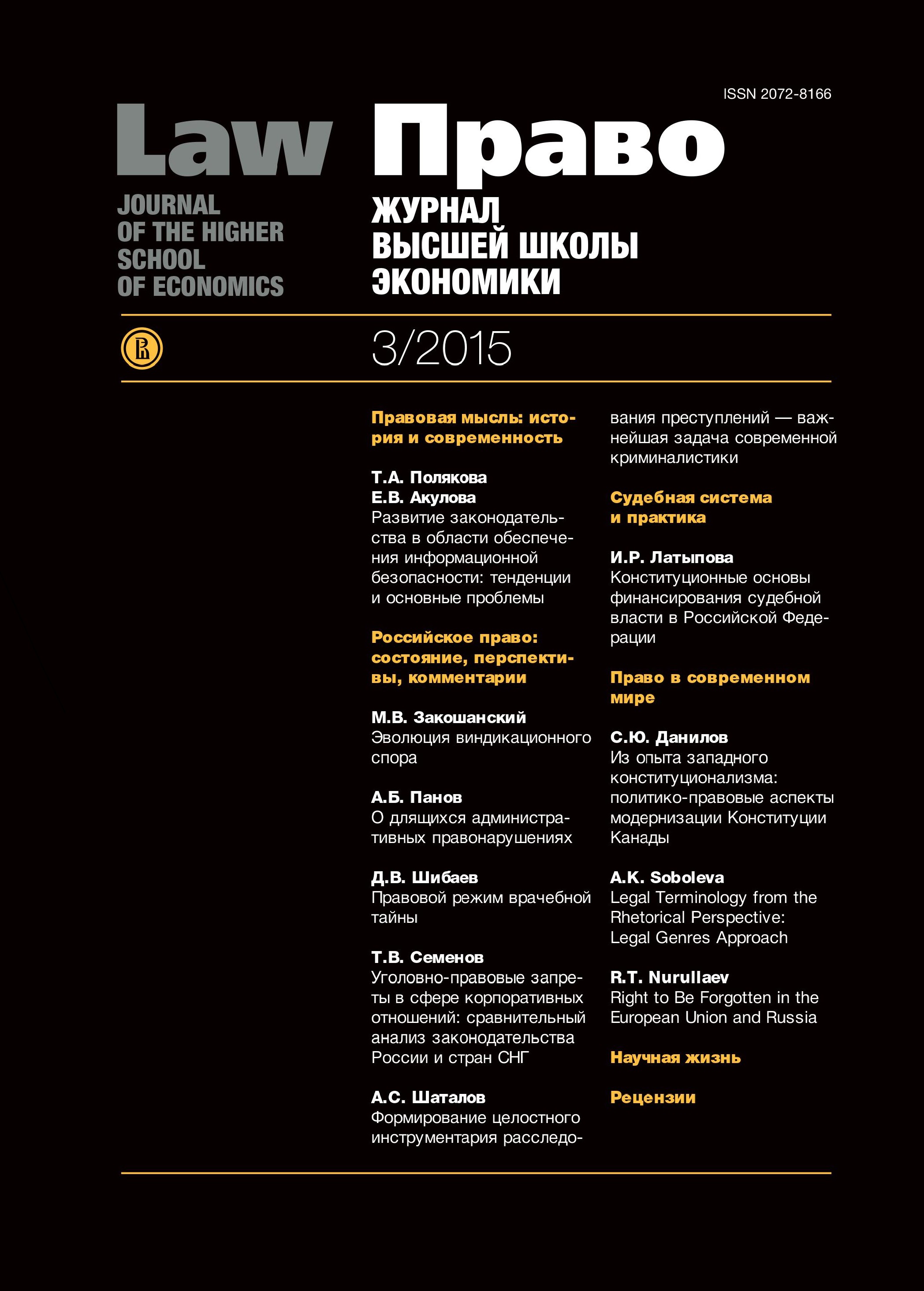Международно-правовое регулирование транспортно-логистического взаимодействия государств в рамках ШОС
Аннотация
В статье рассматриваются актуальные правовые вопросы межгосударственного экономического взаимодействия в рамках евразийских механизмов экономического сотрудничества и интеграции. Исследуются международно-правовые аспекты сотрудничества государств-членов Шанхайской организации сотрудничества (ШОС) в транспортно-логистической сфере. Значимость создания транспортной инфраструктуры в рамках данной международной организации обусловливается функционированием и динамичным развитием ШОС в сложных геополитических и геоэкономических реалиях. Автор исследует основные международно-правовые документы ШОС, касающиеся сферы транспорта; анализирует новейший эмпирический материал по данной тематике. Выявляются особенности и недостатки в правовом регулировании транспортно-логистической деятельности на пространстве ШОС. Автор, рассматривая проблему сопряжения современных евразийских механизмов межгосударственного взаимодействия с точки зрения создания и развития транспортной инфраструктуры, заключает, что в рамках ШОС могут эффективно реализовываться новейшие транспортные инициативы Китая и России. Сопряжение таких евразийских интеграционных проектов, как Евразийский экономический союз (ЕАЭС) и «Экономический пояс Великого шелкового пути» (ЭПВШП) с помощью ШОС как институционально оформленной международной организации и эффективной площадки для выработки согласованных решений, представляется оптимальным. Совмещение данных механизмов в перспективе позволит создать новую модель экономического сотрудничества. Основой практической реализации сопряжения евразийских интеграционных механизмов видится строительство и модернизация трансконтинентальных транспортных магистралей. Автор рассматривает механизмы международно-правового регулирования железнодорожного транспорта в рамках ШОС; в статье впервые выявляются основные препятствия и даются рекомендации для эффективного функционирования железнодорожного сообщения. Также исследуется международно-правовое регулирование автомобильного сообщения на пространстве ШОС. Изучается существующая на сегодняшний день правовая база международных автомобильных перевозок, проводится анализ Соглашения между правительствами государств-членов ШОС о создании благоприятных условий для международных автомобильных перевозок. В результате исследования автор приходит к выводу, что разработанное в рамках ШОС международно-правовое регулирование межгосударственного взаимодействия в транспортно-логистической сфере позволяет эффективно развивать современную транспортную инфраструктуру, формирование которой влечет интенсификацию сотрудничества государств-членов ШОС в иных областях и будет способствовать развитию экономической интеграции государств евразийского континента.


















